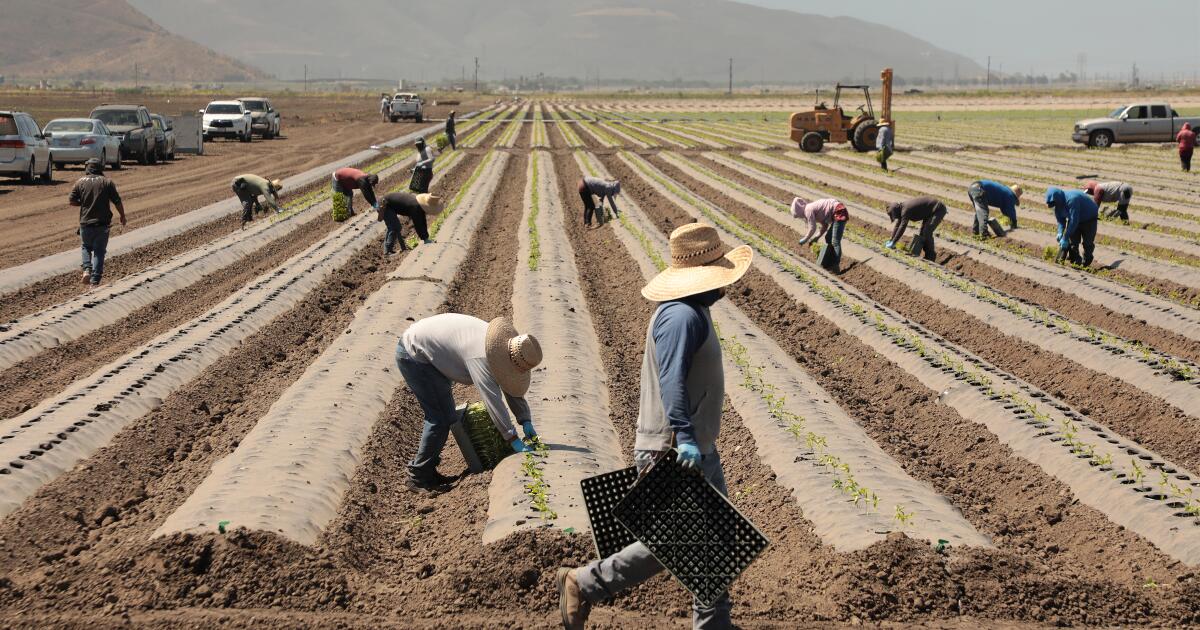NASA has been given orders by the White House to destroy two major satellites in space that are used by farmers, scientists, as well as oil and gas companies.
NASA has been given orders by the White House to destroy two major satellites in space that are used by farmers, scientists, as well as oil and gas companies.
According to NPR, the data from the satellites provides detailed information about carbon dioxide and crop health. The outlet stated that the objects are the only two federally used satellites that provide information built to specifically monitor planet-warming greenhouse gases.
It is currently unclear why the Trump administration seeks to destroy the satellites, as they are state-of-the-art and were expected to last for several more years. In 2023, an official data review found that the data stored there was “of exceptionally high quality,” and they recommended continuing the mission for at least three more years. It comes after a chilling map revealed the US regions where 75% of people will die in a nuclear World War 3.
Both missions, known as the Orbiting Carbon Observatories, reportedly used identical measurement devices to measure carbon dioxide and plant growth around the globe. While the devices were identical, one of the satellites is actually attached to the International Space Station.
Should NASA choose to comply with the directive, the standalone satellite will burn up in the Earth’s atmosphere. The mission has since been dubbed Phase F, per David Crisp, a longtime NASA scientist who designed the instruments and managed the missions until he retired in 2022.
“What I have heard is direct communications from people who were making those plans, who weren’t allowed to tell me that that’s what they were told to do,” Crisp said to NPR. “But they were allowed to ask me questions.”
“They were asking me very sharp questions. The only thing that would have motivated those questions was [that] somebody told them to come up with a termination plan,” he added. According to Crisp, it makes no sense why Trump would order the termination of the satellites.
Crisp commented that it makes “no economic sense to terminate NASA missions that are returning incredibly valuable data.” According to the expert, maintaining the two observatories only costs $15 million per year, barely a dent in the agency’s $25.4 billion budget.
Two other NASA scientists have confirmed that the Trump administration had contacted mission leaders to make plans for the termination of other projects that would lose funding under Trump’s proposed budget for the next fiscal year.
Several scientists have expressed outrage at the proposal and argued that it could precipitate an end to the US’s leadership in space.To prevent this, lawmakers have attempted to draw up a counter to Trump’s plan to keep NASA’s budget roughly in line.
“We rejected cuts that would have devastated NASA science by 47 percent and would have terminated 55 operating and planned missions,” said Senator and top appropriator Chris Van Hollen, per Bloomberg. “Eliminating funds or scaling down the operations of Earth-observing satellites would be catastrophic and would severely impair our ability to forecast, manage, and respond to severe weather and climate disasters House representative and Committee on Science, Space and Technology ranking member Zoe Lofgren
“The Trump administration is forcing the proposed cuts in its FY26 budget request on already appropriated FY25 funds,” she added. “This is illegal.”
It comes after a Trump family member revealed his body is “rotting inside” as she delivered a terrifying update on the president’s health.
https://www.irishstar.com/news/us-news/white-house-orders-nasa-deliberately-35680658


